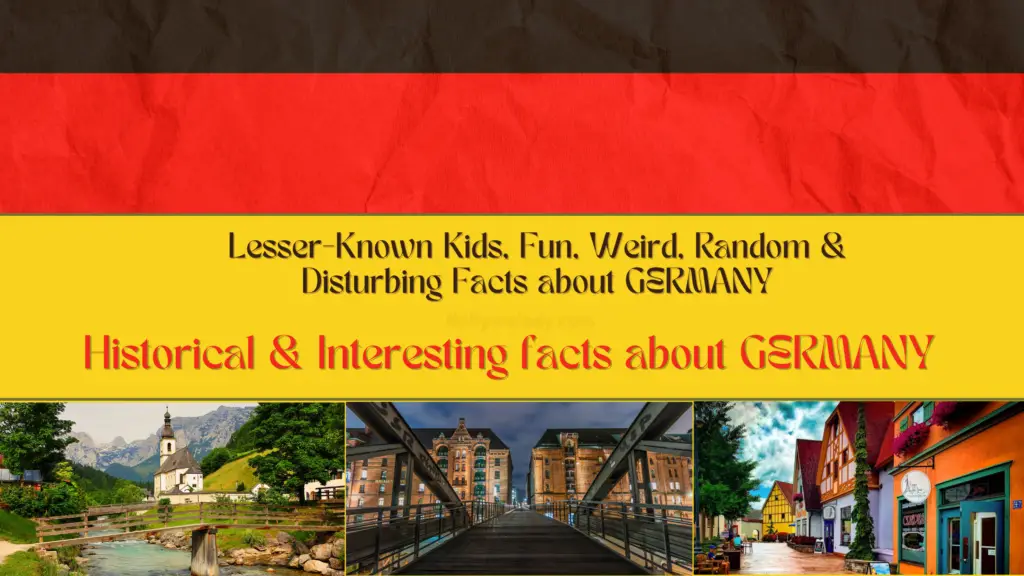Lesser-Known Kids, Fun, Weird, Random & Disturbing Facts about GERMANY | Historical & Interesting facts about GERMANY

- By
- Aparna Patel
- |
- 24 Feb, 2023
- |
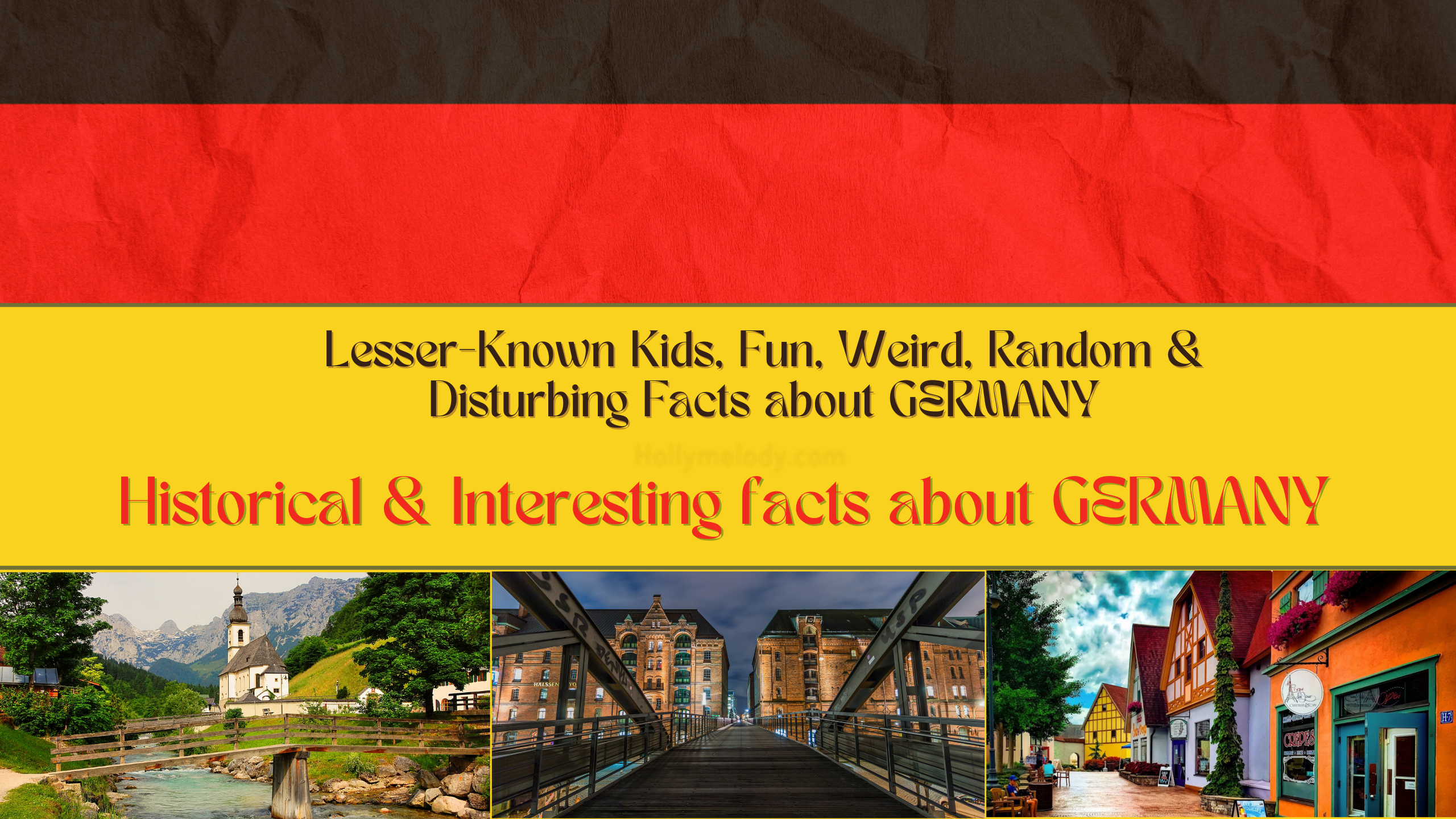
Are you looking for lesser-known facts about Germany? Here is a collection of Interesting and fun facts about Germany which You’ve Never Heard Before as well as you can also read general information about Germany such as about culture, history, government rule etc.
Even after being pacified in world wars, Germany made such progress so fast that it is counted among the most powerful countries in the world. Today we will tell you some shocking things about Germany. Germany is a powerful country in the world, After World War II, it has made tremendous progress. Its citizens have patriotism and know smiles even in difficulties. Germany has changed the direction of engineering and today it is helping the United States in car manufacturing. Germany is ahead of many countries in engineering and science, but also in arts, sports, literature, and business.
Germany is one of the most powerful countries in Europe. Many world-famous scientists and philosophers have emerged from this country. Many characteristics of Germany attract the world. The area of Germany is 348,672 Km Square. Germany is the 64th largest country in the world.
Table of Contents
A: General Facts About GERMANY
- Total Area – 357,386 km²
- Total Population –82.8 million(8.28 crores)-2017
- Capital – Berlin
- Currency – Euro
- National Flower – Blue-violet bloom
- National Sports – Football
- National Day-3 October
- Largest Lake-Lake Constance
- Highest Peak – Zugspitze 2,962 m (9,718 ft)
B: Amazing Facts About GERMANY For Tourists and Kids
1. Germany, officially the Federal Republic of Germany, is a federal parliamentary republic located in the center of Western Europe. It consists of 16 constituent states, spread over an area of 3,57,021 square kilometers. Germany is the most populous country in the European Union with 82 million inhabitants. Let me tell you that, It is the second most famous immigration destination in the world, after the United States. Berlin is the capital city of Germany, which is also the largest city in the country. Other main cities of the country include Hamburg, Munich, Cologne, Frankfurt, and Stuttgart.
2. Berlin is nine times bigger than Paris and the number of bridges is more than Venice.
3. The Berlin wall was a barrier that existed from 1961 through 1989
The Berlin Wall was a barrier between West Berlin and the German Democratic Republic. Who divided the city of Berlin into eastern and western pieces for 28 years. It was built in 1961 and disbanded in the weeks following 9 November 1989. The Berlin Wall was the most prominent part of the German border and a major symbol of the Cold War.

After World War II, Germany had two parts. A huge wall was made between the capital city of Berlin, which used to separate both parts of the country, thousands of engineers, doctors, scientists, and businessmen left East Berlin and migrated to West Berlin. Due to this economic and political difficulties started to arise in East Berlin. Therefore the Berlin Wall was built in 1961 to prevent migration.
4. Germany’s currency is Euro and the spoken language is German Dutch English.
5. People in Germany do not speak “hello” on the phone but start their talk by telling their names.
6. In Germany’s jails, if the prisoner tries to escape from prison, then the government of Germany does not consider
to be a crime, because the government of that country believes that freedom is the “birthright of man”.
7. There is no speed limit on Germany’s 70% of highways, but if you are out of fuel on these highways, then you may have to pay a fine.
8. Germany’s population decreases by 0.2 million every year.
9. Hitler who was bleeding all over the world was living in Germany.
10. After World War I Germany was completely poor. Germany had a loan equal to 96000 tonnes of gold.
11. During the Second World War, Russia’s Army raped 2000000 German women(source from here)
12. In Germany, 15 bombs are found daily even today, which were to be used in World War II, such bombs are discovered and defused.
In 2017, a bomb was found in Frankfurt, Germany, and 70000 people were evacuated to neutralize it. 1400 tons of British bombs were safely defused as part of an expedition. During the war, the German media named this bomb the von blocker (blobster), which has the potential to completely damage roads or buildings. The bomb was found on 29 Aug 2017 during the construction of a building at the West End Campus at Goethe University Frankfurt. The officials are monitoring the spot. Police say the HC 4000 is a high-capacity bomb, which was dropped by the British Army.
C: You do not know these UNIQUE facts about the GERMANY
Here is a vast amount of information about Germany, including many unique facts. Here are some examples:
- Germany is home to the world’s largest cuckoo clock, which is located in the town of Triberg in the Black Forest. The clock stands over 50 feet tall and weighs over 13 tons.
- Berlin, the capital city of Germany, has more bridges than Venice, Italy. It has over 1,700 bridges compared to Venice’s 400.
- Germany has a law called the “Straßenverkehrsgesetz” that prohibits drivers from running out of fuel on the Autobahn. If a driver runs out of gas on the Autobahn, they can face a fine of up to €70.
- Germany is home to the world’s oldest universal healthcare system, which was implemented in 1883 by Chancellor Otto von Bismarck.
- The world’s largest Gothic cathedral is located in Cologne, Germany. The Cologne Cathedral took over 600 years to build and is over 157 meters tall.
- Germany is the birthplace of the Christmas tree tradition. The first known Christmas tree was set up in the 15th century in Strasbourg, which was then part of Germany.
- The Berlin Wall was built in 1961 to separate East and West Germany. It stood for 28 years until it was torn down in 1989, leading to the reunification of Germany.
- Germany is the second-largest beer consumer in the world, after the Czech Republic. German beer is known for its strict brewing laws, called the Reinheitsgebot, which dictate that beer can only be made with four ingredients: water, barley, hops, and yeast.
- The world’s largest science museum is located in Munich, Germany. The Deutsches Museum has over 100,000 exhibits and receives over 1.5 million visitors each year.
- Germany is the largest economy in Europe and the 4th largest in the world, after the United States, China, and Japan.
13. Poland seeks compensation from Germany for damage caused during world war-II
The occupation by the Nazis during the Second World War, which lasted from 1939 to 1945, killed 5 million people in Poland and caused a loss of about $ 54 billion.
This has been claimed in a report of a parliamentary commission in Poland. The current government of Poland wants to compensate Germany for the losses suffered by the Nazis to the country during the Second World War. The report states that these are preliminary figures.
Jaroslav Kaczynski, leader of the Law and Justice Party, argues that the Nazis first attacked Poland in 1939, causing extensive damage to the country in World War II. After the end of World War II, Poland was dominated by Soviet Russia for decades, so this country could not independently seek compensation from Germany. However, Germany compensated the survivors of the Nazi atrocities in Poland.
13. Famous companies like BMW, Audi, and Mercedes Benz are from Germany and today they are used all over the world.
14. In Germany, you can not say Happy Birthday to anybody in Advance because the people there believe that it is a sign of Bad Luck.
15. Germany has divided itself into 16 states and 493 districts of these 16 states.
16. After World War I, the number of men in Germany was very less. there were only 350 men in 1000 women. That is, 1 out of 3 women could get a spouse only.
17. From 1989 to 2009, more than 2 thousand schools had to be closed in Germany because of less number of children.
18. Most books in the whole world are printed in Germany alone.
In Germany, the first magazine was published 350 years ago in 1663. Germany is one of the world’s largest book-publishing countries – with more than 94,000 books published every year.
19. Germany’s army can refuse to obey its officials if they feel that the work assigned to them is against humanity
20. Smoking in public places is illegal. While drinking alcohol is legal.
21. The Richest man in history
If Jakob Fugger were alive today, then today he would have been richer than Bill Gates, Mark Zuckerberg, Warren Buffett, and Carlos Slim, the four great nobles of the world.
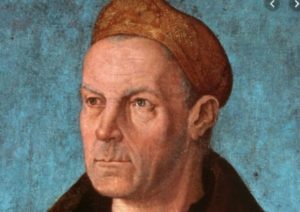
According to Jacob’s biographer and former editor of Wall Street General Greg Steinmetz, this German banker and businessman were called ‘The Rich One’.This was the year 1459 to 1525. Jacob earned today’s 400 billion US dollars or about 25 trillion rupees in that period. In 2015, Greg called Jacob the richest man in history in his book ‘The Richest Man Who Ever Lived’.
22. Here any kind of discrimination against homosexual people is a legal offense.
23. Germany and Japan have the lowest birth rates compared to other countries in the world.
24. Abandoned Military Hospital (Beelitz-Heilstätten) one of the Hountend places in Germany
This military hospital is like the location of a horror film. An empty porch, rusted beds, and dust scattered all around make it scarier. Hitler was also treated in this hospital. In 1902 it was opened as a lung clinic. It remained a military hospital during both world wars. Today this place has turned into ruins. This place is becoming popular among tourists as well as photography enthusiasts.
25. German people consume the most beer after the Irish, Germany ranks second in the list of countries that consume the most beer.
26. Oktoberfest, the world’s largest beer festival, is held in Bavaria, Munich, Germany. The size of the glass of beer at this festival is 1 liter.
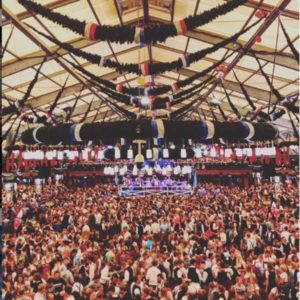
27. To get 1 beer, you have to show your thumb in Germany. If you showed your first finger it would mean you need 2 beers.
28. Iffland Ring the unique ring of the world
August Wilhelm Ifland was a great actor and playwright from Germany. He was born on 19 April 1759 in Hannover, Germany. A ring is given in his name in Germany, which is considered a matter of great pride.
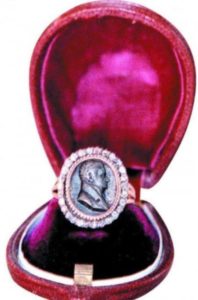
This ring is given to great actors and theater artists of the German language. The ring is studded with 28 small diamonds and is a photo of Ifland.
29. Fanta was first made in Germany because it became difficult to import Coca-Cola during the Second World War.
30. Prostitution has grown very fast in Germany. Every year, about one million men visit brothels in Germany.
Prostitution has increased five times in comparison to Britain. According to statistics, prostitution in Germany has reached 15 billion euros.
During this time she earns only 100 Euro (about 7400 rupees). Of the money earned, they have to pay 23 euros for beds and 25 euros for tax. They have to pay more than half the money in paying taxes. This brothel paradise employs about 150 girls and the brothel receives about 50,000 customers every year. This was revealed in the documentary prepared by Channel 4.
31. In Germany, you cannot name children in such a way that their gender (female or male) is not known, like – “Bobby”
32. Germany unveils its first e-highway for trucks in the test project
Germany has come up with a new way of reducing pollution caused by trains. For the first time, an e-highway is being built at a cost of 60 million dollars (Rs 544 crore) in the country. The government has also recently tested a 10-kilometer highway between Frankfurt Airport and the nearest industrial park.
The system is developed by the German company Siemens. According to scientists, this is the first test of its kind to reduce pollution. The trucks are fitted with a motor, which carries power from the cable. With the power of electric cables, trucks can run at a speed of 90 kilometers per hour.
33. Germany was the first country to adopt DST (Daylight Saving Time or Summer Time). It came into vogue in 1916 amid the First World War.
34. Every phantom is born in Germany:

All the Rolls Royce Phantoms you see in the world are made in Germany. Because about 200 aluminum sections and 300 alloy parts are welded by workers in Germany. You will be surprised to know that it takes 2 months to build a phantom car.
35. Ethnic groups: German 91.5 ‘, Turkey 2.4’, Italian 0.7 ‘, Greek 0.4’, Polish 0.4 ‘, Others 4.6’
36. Language – Most people in Germany use the German language in conversation. This is the main language. Other languages are also spoken in some states, but the number of speakers is not much.
36. Sports – Germany’s main sport is football. This country has also been the winner of the Football World Cup many times. Apart from this, swimming, hockey, handball, basketball, ice hockey, and tennis are also very popular.
Here, for two decades, the trend of the people of Germany has increased rapidly towards the game of hockey.
He has also performed commendably many times in the Hockey World Cup.
37. Education – Higher education reform programs in Germany have been run at a rapid pace since 1960. Due to these programs, today this country has been included in the list of countries with a high literacy rate. ARWU’s ranking of 2008 included 6 universities in the top 100 and 18 universities in the 200.
D: Historical facts about GERMANY
Here are some historical facts about Germany:
- The countries with barbaric tribes living to the north of the ancient Roman Danube River were called Germania,
after which the English word Germany was named. Gradually, these tribes became Christianized and the country became the center of the Christian Holy Roman Empire. - The Celts are considered early citizens of Germany. Subsequently, in the second century BC. German tribes began to settle here. By the Treaty of Verdun in 843, Charle Magne granted the land east of the Rhine to the German Prince Louis. Albert Dynasty of Hemsburg in 1438 and the Holy Roman Empire ruled this dynasty until 1806.
- Meanwhile, Prussia was emerging as a powerful state. On the issue of Silesia, Frederick the Great (1740–1786 AD) organized the army of Prussia and defeated Maria Theresa of Austria. After Napoleon’s defeat at the Battle of Waterloo (1816 AD), the battle for dominance in Germany continued between Austria and Prussia.
- Austria (1866) was defeated and the North German Confederation (1867) was established. The principal of this German unity was Otto von Bismarck, the Prime Minister of Prussia. He waged war against Denmark, Austria, and France and tied the whole of Germany to the thread of unity.
- On January 18, 1871, Emperor Wilhelm I of Prussia have proclaimed the German Emperor. With the help of a powerful army, skilled bureaucracy, and a loyal middle class, Bismarck succeeded in building a powerful centralized Germany.
- Emperor Wilhelm overthrew Bismarck in 1890 and adopted a policy of colonialism and established a powerful navy. Germany suffered a major defeat in the First World War (1914–1918). After the war, Emperor Kaiser took refuge in the Netherlands.
- In such a situation, the Social Democrats, under the leadership of Friedrich Ebert, established the Weimar Republic. Germany suffered the worst consequences of the First World War. The Treaty of Versailles ended his army and inflicted heavy fines on it.
- In such a situation, the emergence of Adolf Hitler. On January 30, 1933, President von Hindenburg appointed Hitler as Chancellor. President Hindenburg died on August 2, 1934.
- Hitler vigorously began the militarization of Germany, abandoning the Treaty of Versailles. In 1935 he took Germany out of the ‘League of Nations’ and captured Rhineland.
- Hitler also strengthened relations with Japan and Italy. Germany annexed Austria in March 1938. The Second World War started with the German invasion of Poland on 1 September 1939.
- Germany initially had spectacular successes in World War II, but later suffered a landslide defeat. On 8 May 1945, Germany surrendered to friendly nations. During World War II, about six million Jews were murdered at the behest of Hitler. After the end of the war, the Allied States divided Germany into four parts through the Balen Conference.
- On May 23, 1949, Bonn made its capital by declaring the Soviet part of Germany as the Federal Republic of Germany. A party regime was established there under the leadership of the Soviet Unity (Communist Party). A centralized constitution was adopted on October 7, 1949.
- The mistrust between the two German countries widened when East Germany built the Berlin Wall in 1961. In such circumstances, West Germany came closer to the US and European countries.
- In 1982 Helmut Cole of the Christian Democrat Party was elected the new Chancellor of West Germany. During his reign, West Germany touched new heights of economic development.
- On 9 November 1989, the Berlin Wall was broken. The integration of the two German nations paved the way after Soviet President Mikhail Gorbachov took a soft stand in July 1990. On 3 October 1990, East Germany was unified into West Germany.
- In 1933, Germany became a founding member of the European Union. Germany is also a member of the United Nations, NATO, the G8, the G20, and the OECD. The nation’s national military spending is the 9th largest in military spending worldwide. Germany is famous for its rich cultural history.
- At the same time, Germany is home to many influential artists, philosophers, musicians, players, industrial people, scientists, engineers, and inventors.
- Germany has a rich history that dates back over 2,000 years. The region was home to several Germanic tribes, including the Franks, the Saxons, and the Bavarians.
- In 800 AD, Charlemagne, the king of the Franks, was crowned Holy Roman Emperor in Aachen, Germany. This event marked the beginning of the Holy Roman Empire, which lasted until 1806.
- Germany played a key role in both World War I and World War II. The country was defeated in both wars and was divided into East and West Germany after World War II.
- The Protestant Reformation, which began in Germany in the 16th century, had a profound impact on the country and the world. Martin Luther, a German monk, was a key figure in the movement.
- Germany has a long history of producing some of the world’s greatest thinkers and philosophers, including Immanuel Kant, Friedrich Nietzsche, and Martin Heidegger.
- The German economy has had a significant impact on the world, particularly in the areas of engineering and manufacturing. German companies like BMW, Mercedes-Benz, and Siemens are known for their high-quality products.
- Germany was reunified in 1990 after the fall of the Berlin Wall. Today, Germany is a leading economic and political power in Europe and the world.
E: Unknown these Facts about the GERMANY
Here are some lesser-known facts about Germany:
- Germany has over 300 kinds of bread, and each region has its unique style. Germans take their bread very seriously and even have a Bread Culture Council to preserve and promote their bread-making traditions.
- The tallest slide in the world is located in Germany’s Tropical Islands Resort, an indoor water park inside a former airship hangar. The slide is over 500 feet long and reaches speeds of up to 45 mph.
- Germany has a tax on being single, known as the “singles tax.” This tax is imposed on individuals who do not have a partner and is meant to offset the benefits that married couples receive, such as lower tax rates.
- The German language has over 1200 words to describe different types of sausages. Germans are very passionate about their sausages and consume an average of 60 pounds of sausage per person each year.
- Germany has over 25,000 castles, which is more than any other country in the world. Some of the most famous castles include Neuschwanstein Castle, Heidelberg Castle, and Hohenzollern Castle.
- Germans are the second-largest coffee consumers in the world, after the Scandinavians. Coffee culture is a big part of daily life in Germany, and many Germans enjoy a “Kaffee und Kuchen” (coffee and cake) break in the afternoon.
- The world’s oldest toy company, Steiff, is based in Germany. They are known for its high-quality stuffed animals, including the iconic teddy bear, which was invented by the company’s founder, Margarete Steiff, in 1902.
- Germany has a unique tradition called “Spargelzeit,” which is the white asparagus season. White asparagus is a delicacy in Germany, and during Spargelzeit, restaurants feature special menus with dishes made with seasonal vegetables.
- The longest word in the German language is “Donaudampfschifffahrtselektrizitätenhauptbetriebswerkbauunterbeamtengesellschaft,” which means “Association for Subordinate Officials of the Head Office Management of the Danube Steamboat Electrical Services.”
- Germany is home to the world’s largest wine festival, the Wurstmarkt, which takes place every September in the town of Bad Dürkheim. The festival dates back to the 15th century and features over 300 different wines and a wide variety of German sausages.
F: Kids, Fun, Random Facts about the GERMANY
Here are some fun, random facts about Germany that kids might enjoy:
- Germany has over 1,500 different kinds of sausages, including bratwurst, frankfurters, and bockwurst.
- The world’s largest model railway is located in Hamburg, Germany. It covers over 1,150 square meters and features over 15,000 meters of track.
- Gummy bears were invented in Germany by Hans Riegel in 1922. They were originally called “dancing bears.”
- Germany is famous for its Christmas markets, which are held in cities and towns throughout the country during the holiday season. The markets feature food, drinks, and gifts, and are a great way to get into the holiday spirit.
- The world’s first printed book was produced in Germany by Johannes Gutenberg in the 15th century. The book was the Bible, and Gutenberg’s invention of the printing press revolutionized the way books were produced.
- The Berlin Zoo is the oldest zoo in Germany and one of the largest in the world. It was founded in 1844 and is home to over 19,000 animals.
- Germany has some of the best theme parks in Europe, including Europa Park, which is the largest theme park in Germany, and Phantasialand, which has some of the best roller coasters in the world.
- German is the most widely spoken language in the European Union, with over 100 million speakers.
- Germany has a rich history of classical music, with famous composers like Ludwig van Beethoven, Johann Sebastian Bach, and Wolfgang Amadeus Mozart all having lived and worked in Germany.
- Germany is famous for its delicious chocolate, including brands like Milka, Ritter Sport, and Lindt. Kids will love trying all the different flavors and varieties.
G: Random, Weird Facts about the GERMANY
Here are some random, weird facts about Germany:
- In Germany, it is illegal to run out of gas on the Autobahn, the country’s highway system. Drivers who run out of gas face a fine of up to 70 euros.
- Germans are known for their love of saunas, and many saunas in Germany are clothing-optional. It is not uncommon for people to go to the sauna completely naked.
- The German word for “glove” is “Handschuh,” which literally translates to “hand shoe.”
- In 2013, a German man named Uwe Mitzscherlich married his cat, Cecilia. While the marriage was not legally recognized, Mitzscherlich had a ceremony and exchanged vows with his beloved feline.
- The longest cake in the world was made in Germany in 2014. It measured over 6.5 kilometers long and was made to celebrate the 775th anniversary of the city of Frankfurt.
- Germans are serious about recycling and have one of the highest recycling rates in the world. In some parts of the country, you can be fined for not recycling properly.
- The German town of Lichtenfels is home to a museum dedicated to spoons. The museum has over 4,500 spoons from all over the world, including some dating back to the 16th century.
- German has a word for the pleasure one gets from someone else’s misfortune. That word is “schadenfreude.”
- Germans are known for their love of beer, and the country has over 1,300 breweries producing more than 5,000 different types of beer.
H: Tourism in GERMANY
Everyone knows its magnificent history, but how magnificent this country is, you will only know by going there.
People coming here are amazed to see that this place is a mixture of adventure, romance, leisure, and many other things. Germany will soon emerge as a love tourist spot. Festivals in this country continue to be throughout the year. You can plan your next holiday here.
1. Cologne
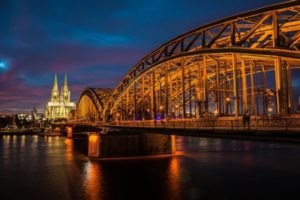
The name of this city has become synonymous with its famous 4711 Cologne water spring. It is a unique experience to see the sewage system built in Roman style and go to the underground world below this city.
2. Hemline
Many of you must have heard the story of Germany’s famous Pied Piper. The hero of that story is told of Hamlin. He used to extract magical tunes from his instrument. Just like the stories in Hamlin, Piper’s house, and many such things related to dentistry can be seen.
3. Munich
The “Beer Challenge Tour” can be enjoyed anytime in Munich city (called the Beer Capital of the world). It introduces the city’s popular beer hall, beer garden, and beer culture.
4. Bavaria
The highest mountain in Germany is in Tsugspitsse, Bavaria. If you are fond of going to high altitudes then definitely visit here and take a glacier tour. Be a part of this free tour starting every day at 11 am and 1:30 pm, you can step into two countries on the same day as it is very close to Austria.
5. Cathedral of Cologne
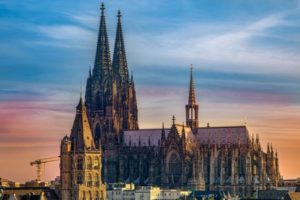
It was built in 1880 and was said to be the largest in the world at that time. Every year, 60 million people from all over the world come to see it. It has been included in the UNESCO World Heritage List since 1996.
6. Neuschwanstein castle
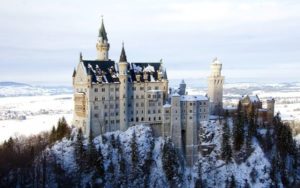
This Castle of Bavaria has confirmed its place in the top 10 list of the tourist board. King of Bavaria Ludvish II built this palace and the amount spent on it was taken from the common people.
7. Heidelberg Castle and Old Town
Heidelberg has been on the list of most favorite tourist destinations for the past several years. Last time it was in the fourth position but this time it is in the second. This city, situated on the banks of the river Neckar, has a lot to entice tourists, including the remains of the famous fort.
- Berlin: Germany’s capital city is a cultural and historical hub, with numerous museums, galleries, and monuments to explore.
- Neuschwanstein Castle: This stunning castle, located in Bavaria, was the inspiration for Disney’s Sleeping Beauty Castle and is one of the most visited castles in Europe.
- The Black Forest: This beautiful region in southwestern Germany is known for its lush forests, picturesque villages, and delicious food.
- The Romantic Road: This scenic route takes visitors through some of Germany’s most charming towns and villages, including Rothenburg ob der Tauber and Dinkelsbühl.
- Cologne Cathedral: This stunning cathedral, located in Cologne, is one of Germany’s most iconic landmarks and a UNESCO World Heritage site.
- Oktoberfest: Held annually in Munich, Oktoberfest is the world’s largest beer festival and attracts millions of visitors from around the globe.
- The Rhine River: This majestic river winds its way through Germany’s western regions, offering visitors stunning views of castles, vineyards, and quaint towns.
- The Brandenburg Gate: This iconic symbol of Berlin is a must-see for any visitor to the city, and is the site of many important historical events.
- Hamburg: Germany’s second-largest city is a bustling metropolis with a rich maritime history, beautiful parks, and world-class museums.
- The Christmas markets: Germany is famous for its Christmas markets, which pop up in cities and towns across the country during the holiday season, offering visitors festive food, drink, and gifts.
I: Some important DAYS in the history of the GERMANY
Here are some important days in the history of Germany:
- October 3, 1990 – German reunification: After the fall of the Berlin Wall in 1989, East and West Germany officially reunified on this day.
- November 9, 1989 – Fall of the Berlin Wall: The Berlin Wall, which had divided East and West Germany since 1961, was torn down on this day.
- May 8, 1945 – Victory in Europe Day: Germany surrendered to the Allies, effectively ending World War II in Europe.
- November 9, 1938 – Kristallnacht: Nazi authorities in Germany and Austria carried out a series of coordinated attacks on Jewish businesses and synagogues, resulting in the deaths of hundreds of Jews and the arrest of thousands more.
- August 13, 1961 – Construction of the Berlin Wall: East German authorities began building a wall to divide East and West Berlin, leading to decades of separation and tension between the two sides.
- January 18, 1871 – Unification of Germany: The German Empire was established with the proclamation of Wilhelm I as emperor in the Hall of Mirrors at the Palace of Versailles.
- November 11, 1918 – End of World War I: Germany signed an armistice with the Allies, bringing an end to the fighting in World War I.
- June 17, 1953 – Uprising in East Germany: East German workers rose up against the communist government, leading to a brutal crackdown by Soviet forces.
- October 3, 1993 – German Unity Day: A national holiday celebrating German reunification.
- January 30, 1933 – Adolf Hitler becomes Chancellor of Germany: Hitler and the Nazi Party rose to power in Germany, leading to the persecution and murder of millions of people, including six million Jews during the Holocaust.
J: Important DATE in GERMANY History
Here are some important dates in Germany’s history:
- 1871 – Ottoman Bismarck achieves the unification of Germany.
- 1871 – On January 18, 1871, Germany was officially unified as the German Empire with the proclamation of Wilhelm I as emperor. This date is considered a major milestone in Germany’s history.
- 1914–1918 – World War I. Germany defeated Kaiser Wilhelm II, and Germany proceeded toward the Republic.
- 1914-1918 – World War I: Germany was a major player in World War I, which lasted from 1914 to 1918. The war ended with the defeat of Germany and the signing of the Treaty of Versailles in 1919.
- 1933 – Adolf Hitler becomes Chancellor, and head of the Nationalist German Party.
- 1933-1945 – Nazi Era: Adolf Hitler and the Nazi Party rose to power in Germany in 1933, leading to one of the darkest periods in the country’s history. During the Nazi era, millions of people, including six million Jews, were persecuted and murdered in the Holocaust.
- 1939-45 – Germany and the country’s main unions were defended in World War II.
- 1945 – End of World War II: Germany was defeated in World War II, and the country was occupied by Allied forces. The war officially ended on May 8, 1945.
- 1949 – Germany is divided. In the west, the United States, the French, and the British Zone became the Federal Republic of Germany, in the east, the Soviet Union also became the Communist German Democratic Republic.
- 1955 – West Germany joins NATO
- 1955 – East Germany joins the Warsaw Pact.
- 1957 – West Germany becomes a founding member of the European Economic Community.
- 1961 – Berlin Wall is built.
- 1961 – Construction of the Berlin Wall: In August 1961, East German authorities began building a wall to divide East and West Berlin. The wall remained in place until November 1989.
- 1989 – Berlin Wall disbanded.
- 1989 – Fall of the Berlin Wall: On November 9, 1989, the Berlin Wall was finally torn down, leading to the reunification of Germany.
- 1990 – Heimlut Kohl takes over command of regrouped Germany.
- 1990 – German reunification: After the fall of the Berlin Wall, East, and West Germany officially reunited on October 3, 1990.
- 2005 – Angela Merkel becomes Chancellor.
- 2015 – Refugee crisis: In 2015, Germany faced a major refugee crisis as thousands of people fleeing conflict and persecution in the Middle East and Africa seeking asylum in the country.
- 2020 – COVID-19 pandemic: Germany, like many other countries around the world, has been affected by the COVID-19 pandemic, which has led to lockdowns and other restrictions aimed at slowing the spread of the virus.
- 2021 – German federal election: On September 26, 2021, Germany held a federal election to determine the makeup of the Bundestag, the country’s parliament.
K: Important Historical events related to the GERMANY country
Here are some important historical events related to Germany:
- Holy Roman Empire: The Holy Roman Empire was a political entity that existed in Central Europe from the 9th to the 19th centuries. It was largely based in what is now Germany, and its influence spread throughout Europe.
- Protestant Reformation: The Protestant Reformation, which began in the early 16th century, had a significant impact on Germany. The movement led to the formation of new Christian denominations and challenged the authority of the Catholic Church.
- Thirty Years’ War: The Thirty Years’ War, which took place from 1618 to 1648, was one of the most destructive conflicts in European history. It was fought largely in what is now Germany, and resulted in the deaths of millions of people.
- German Empire: In 1871, the German Empire was established with the proclamation of Wilhelm I as emperor. This marked the beginning of a new era in German history, characterized by rapid industrialization and territorial expansion.
- World War I: Germany was one of the major players in World War I, which lasted from 1914 to 1918. The war ended with the defeat of Germany and the signing of the Treaty of Versailles, which imposed harsh penalties on the country.
- Nazi-Era: Adolf Hitler and the Nazi Party rose to power in Germany in 1933, leading to one of the darkest periods in the country’s history. During the Nazi era, millions of people, including six million Jews, were persecuted and murdered in the Holocaust.
- World War II: Germany was again a major player in World War II, which lasted from 1939 to 1945. The war ended with Germany’s defeat and the signing of the unconditional surrender on May 8, 1945.
- Cold War: After World War II, Germany was divided into two separate countries, East Germany (under Soviet control) and West Germany (under Allied control). This division lasted until the fall of the Berlin Wall in 1989 and the reunification of Germany in 1990.
- European Union: Germany played a key role in the formation of the European Union, which was established in 1993. Today, Germany is one of the most influential countries in the EU and is often referred to as its de facto leader.
- Modern Germany: Today, Germany is a prosperous and influential country, with a rich cultural heritage and a strong economy. However, the country continues to grapple with the legacy of its tumultuous past and strives to promote peace, tolerance, and democracy both at home and abroad.
If you know any new things about GERMANY then tell them through the comments so that other people can also read, thank you
Read more:
Search Posts
Latest posts
-
5 Mar, 2024
Passing through airport security with autism
-
4 Mar, 2024
Why are there no seat belts on trains?
-
4 Mar, 2024
How can I do a "broad" search for flights?
Popular posts
-
5 Mar, 2024
Why prohibit engine braking?
